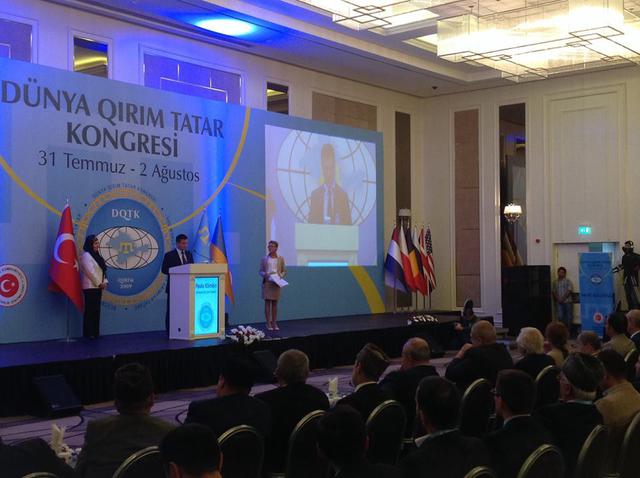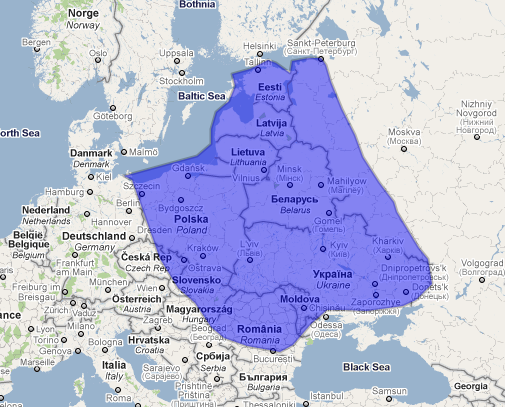In the most detailed discussion of what might be called Kyiv’s non-recognition policy of the Russian Anschluss, Ukrainian Foreign Minister Pavlo Klimkin told the Second World Congress of Crimean Tatars that peace with Russia might be possible but that normalization of relations would be impossible until Russia’s illegal annexation of Crimea ends.
After saying that Ukraine “would not bring war to Crimea under any circumstances,” the top Ukrainian diplomat declared that Kyiv would “never accept the annexation of part of its sovereign territory” and that this would put clear limits on its relations with Moscow.
Klimkin said that “under conditions of the annexation of Crimea, there will not be any normalization of relations. Peace with Russia – yes; cooperation in certain areas – possible. The normalization of relations – no.” And he argued that “the Russian occupation of Crimea is temporary because it is illegal. The entire world knows and recognizes this.”
Moreover, he continued, Ukraine “has insisted and in the future will continue to insist without compromise on the defense of human rights on the Crimean peninsula.” That is necessary because of the horrific violations of the rights of the Crimean Tatars and other residents of the Ukrainian peninsula by the Russian occupiers.
“The latest example,” Klimkin said, “are the obstacles” which these officials threw up to block Crimean Tatar officials from attending the congress. There is a clear goal behind Moscow’s actions: “the world must not learn the truth about the situation in Crimea where murders and kidnappings are a tragic reality.”
Despite the Russian occupation and aggression in the Donbas, the Ukrainian foreign minister continued, “Ukraine has found a way to provide financing for the social and other needs of the Crimean Tatars” via the European Investment Bank
and via direct Ukrainian funding. And it is working on laws to ensure the rights of Crimean Tatars after the Russian occupation ends.
Ukraine’s president and prime minister sent messages of support and encouragement to the World Congress of the Crimean Tatars, but Klimkin spoke to it. And his speech may prove to be the most important because it shows that Kyiv is moving toward the kind of non-recognition policy that the US and other Western countries adopted at the time of the Soviet occupation of the Baltic states.
That policy, it will be recalled, specified that the US would never recognize the incorporation of Estonia, Latvia, and Lithuania into the USSR and set the rules for the behavior of American officials with respect to those three countries, including a ban on visits by senior officials to them and the maintenance of ties with pre-1940 diplomatic representatives.
American non-recognition policy did not, Soviet and Russian claims notwithstanding, ever promise that the US would “liberate” the three Baltic countries, and it did not preclude cooperation with Moscow on other issues. Some criticized it for that, but by defining the issue in the way that it did, that non-recognition policy did three important things.
- First, it meant that the US would not sacrifice the status of the Baltic states as a result of some change in relations between Washington and Moscow, something that could more easily have happened had the US not articulated a non-recognition policy of the kind that it did.
- Second, it send a signal to Moscow that even if there was progress in other areas, that did not mean that the US would change its position with regard to the Soviet occupation of Estonia, Latvia and Lithuania.
- And third, non-recognition policy served as a source of encouragement to the peoples of Estonia, Latvia, and Lithuania during Soviet times that they were occupied peoples and that their occupation would eventually end, as it did in 1991.
Klimkin’s declaration in Ankara shows that Kyiv is moving toward exactly that policy for Crimea, even though Western governments have not yet seen fit to go beyond the kind of public declarations that some future change in East-West relations could render meaningless.
Ukraine now has a non-recognition policy for Crimea; it is time for Western governments to articulate one of their own, as carefully crafted as the one Sumner Welles put in place for the Baltic countries in 1940 and as the one Klimkin has just provided.





